Novels, novellas, inventions, non-fiction and exploration—Alexander writes all manner of books that are not part of his serial fiction.


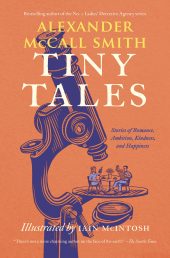
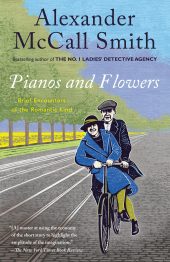
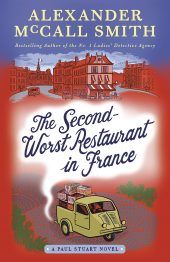

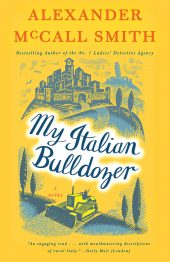
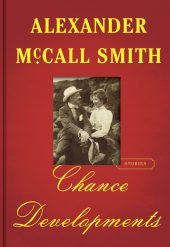

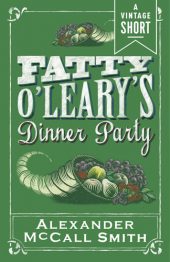


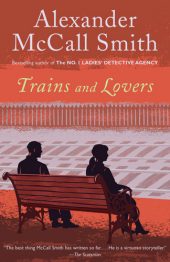
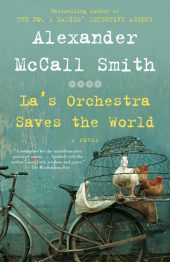


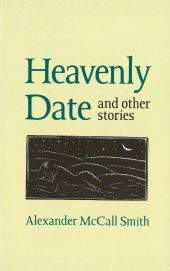
Reviews
It is 1938 and the final days of the British Empire. In a bungalow high up in the green hills above the plains of Ceylon, under a vast blue sky, live the Ferguson family: Bella, a precocious eight-year-old; her father Henry – owner of Pitlochry, a tea plantation – and her mother Virginia. The story centres around the Pavilion in the Clouds, set in the idyllic grounds of the plantation, carved out of the wilderness. But all is not as serene as it seems. Bella is suspicious of her governess, Miss White’s intentions. Her suspicion sparks off her mother’s imagination and after an unfortunate series of events, a confrontation is had with Miss White and a gunshot rings off around the hills.
Years later, Bella, now living back in Scotland at university in St Andrews, is faced, once again with her past. Will she at last find out what happened between her Father and Miss White? And will the guilt she has lived with all these years be reconciled by a long over-due apology?
A true classic of the imagination from the pen of Alexander McCall Smith. This is a novel that will transport readers from armchair to Ceylon in just the same ways in which The No. 1 Ladies’ Detective Agency transports them to Botswana – you will feel the heat of the sun, the length of the days, the love of an author for a country. And you will feel the angst of a family far from home and watch as their lives start to unravel.
Reviews
Tiny Tales – a unique collaboration from bestselling author Alexander McCall Smith and illustrator Iain McIntosh. Perfect short stories that dance across your mind just as an amuse bouche dances on your tongue.
Stories do not have to be long. In the space of a couple of sentences – or even a page or two – we may see the human heart exposed in a way that is more powerful than occurs in many much longer narratives.
In Tiny Tales Alexander McCall Smith explores romance, ambition, kindness and happiness in thirty short stories that range in length from the short to the minuscule. The settings are as diverse as the characters – Scotland, England, Australia, the United States – combining to create a rich and surprising tableau. An Australian pope? A persuasive cosmetic surgeon? The world’s laziest cat? A group of students living together and getting romantically entangled? All human and animal life is here – in miniature.
These stories are inspired and accompanied by the thirty magnificent strip Tiny Tales created by McCall Smith and illustrated by the brilliant Iain McIntosh – each cartoon a little gem of observation.
Tiny Tales strips appeared every week in the London Financial Times for a four month period.
Very short stories are not the exclusive preserve of writers. Illustrators are also adept at the form, and it was for this reason that I approached the well-known Scottish illustrator Iain McIntosh to see whether he would be interested in embarking on a series of extremely brief stories. The idea was that Iain would draw four panels in which a whole story would be illustrated with the minimum of text.
Reviews
Pianos and Flowers is a remarkable gift of engaging short stories imagined by one the world’s greatest story writers.
Earlier this year, Alexander McCall Smith met the Scottish editor of The Sunday Times and agreed to write a series of short stories which would run in the paper. The Sunday Times opened up their archive of photographs and Alexander selected anonymous, black and white pictures, imagined the story behind the scenes depicted, and created delightfully playful stories to enchant the reader. These stories appeared in the paper but since then, Alexander has reshaped them, added new stories and they have now grown into a powerful, hugely entertaining collection of tales of love and romance: Pianos and Flowers.
When I was asked by the The Sunday Times to write a number of short stories for the newspaper, I suggested that I should select photographs from their extensive photographic archive, and create stories based on what I imagined the pictures depicted. Six of the stories were published in the paper – a few of them are included here, but the rest are new. We do not know, of course, who the people in these photographs were, nor what they were up to. They were almost certainly not doing what I say they are, but that is the joy of looking at photographs in this way: from the tiniest visual clue we can create a whole hinterland of experience – of love, of hope, of simply being human.
Reviews
In The Second-Worst Restaurant in France, Paul Stewart (who featured in My Italian Bulldozer) has returned to Scotland to continue his successful career. His agent and girlfriend, Gloria, has arranged for him to write The Philosophy of Food in Six Easy Chapters, a project he relishes but that will have to be delivered in six months. It is not going well, as Paul finds his domestic circumstances unsuited to concentrated hard work: Gloria has now moved in with him (not specifically invited) and has brought with her two extremely vocal and demanding Siamese cats. The cats give Paul no peace.
Beginning to worry that The Philosophy of Food will never be written Paul calls on the aid of his cousin, Chloe, who suggests a radical course of action. She has taken a six-month lease on a house in a French village not far from Poitiers and invites him to join her there and get the book finished in peace. He needs no second bidding and it is not long before he escapes to France.
Once there, however, Paul finds his fortunes tangled up with the fate of one eating establishment in the village: the infamous Second-Worst Restaurant in France …
Reviews
Excerpt
1. Remarkable Cousin Chloe
It was one of Paul Stuart’s friends who said to him, “I can’t stress this enough, you know: breathing is important. Really important.”
“I’d already worked that out,” Paul replied.
“Oh, I know it sounds obvious . . .”
It does, thought Paul.
“But people forget. And they just breathe—you know, like this.”
Paul waited.
“Whereas,” his friend continued, “you should breathe like this.”
In, out . . .
“I thought I already was,” said Paul. “In, out. Like that?”
“Deeper. And hold the breath in for a while. Like this.”
There was silence. Then the friend said, “And while you hold it in, think. That’s the important thing. Concentrate your thoughts. Think of the present, Paul. The right now. The actual.”
“I’m thinking.”
“Good. You need to be mindful, Paul. Mindful. In. Think. Out. Still thinking.”
And he should also close his eyes from time to time, the friend said, and think about where he was and what he was doing, rather than about where he was going to be, and what he was going to be doing. And it was for this reason then that Paul, well--known food writer, celebrated cook, and a kind but slightly accident-prone man, now closed his eyes and took a deep breath.
He smelled coffee, and this was, he thought, a mindful sort of smell. In front of him, in the real world, was a freshly made, piping-hot cup of Brazilian coffee, its aroma drifting up to him on little wisps of steam. He loved the smell of that; a dark smell, a chocolate smell, but without chocolate’s note of sweetness. The smell of coffee, really; that, he decided, was the way he would describe it. He opened his eyes, and gazed out of the window.
He thought—as he took a deep breath—Should I go? He knew that was not mindful. He needed to think again, not about what he should do in the future, but about what he was doing now. But still the same question came back. Should I go to France? Should I call Chloe right now and tell her: no France?
He exhaled. He could still smell the coffee, which was now.
***
It was late spring in Scotland and life was undoubtedly good—as was the view. From where he was sitting, in the kitchen of his flat, Paul could see in the distance, kissed by sunlight, the castle that dominated the city. Beneath it, the roofs and spires of the Old Town, with, here and there, those odd architectural spikes for which Edinburgh was so well known, sticking up as if to proclaim Scotland’s ancient motto Nemo me impune lacessit—Nobody challenges me with impunity. Spikes placed on the tops of buildings, prickly thistles, the sharp-tipped antlers of Highland deer: these all played a major part in the iconography of Scotland, Paul thought; but so did the hills, those gentle, feminine hills; so did the waterfalls, and the light, and the cold blue sea; so did this city, that was like an opera set, on which at any moment somebody might fling open a window and start to sing.
Paul lived—in a part-time way, as he put it—with his girlfriend, Gloria, who was also the editor of his books, and with her two Siamese cats. It was living with somebody in a part-time way because Gloria kept her own flat on the other side of town, and still spent much of the day there. That was where her office was, where her mail was delivered, and where most of her clothes—a disorganised wardrobe, a riot of colour—were kept. It would have been easier, of course, if they had co-habited fully, but Gloria simply could not face sorting out the detritus of the years she had spent in that particular flat. It was just all too complicated; much simpler to leave things as they were. Besides, the arrangement gave both of them space, and space, she felt, was what every relationship—with anyone at all—required.
Paul and Gloria got on well. It had never been one of those passionate affairs, in which two people, in mutual intoxication, filled their waking moments with thoughts of one another. “It’s not like that, with us,” Gloria had said to a friend. “It’s different with Paul; it really is. We’re not like two love-struck kids, gazing into one another’s eyes. We’re . . .”
“Mature adults?” supplied her friend.
“Exactly.”
“Oh, well,” said the friend.
It had its moments, though, and neither Paul or Gloria wanted or expected much more out of it. They were friends, as well as lovers, and that, they had both decided, was a good state to be in. To be a lover was easy enough; to be a friend required rather more. To be both was something not given to everyone.
There were disagreements, though—areas where a different view was taken of something that might not have been of great importance in itself, but was capable of disturbing the otherwise tranquil waters of their domestic relationship. Such as cats, and it was of these cats that Paul was thinking as he looked out from his kitchen window that morning.
Gloria was the owner of two Siamese cats, Hamish and Mrs. Macdonald. They were sleek, self-satisfied creatures, cuttingly arrogant and effortlessly handsome in a way in which lesser cats were not. They had light blue eyes that stared at you with a somewhat off-putting intensity. They had silky coats of a shade that a Belgian chocolatier might have taken years to perfect. They were vocal in a way that only Siamese cats can be, voicing their opinion in long-drawn-out cat-sounds that seemed to demand an instant response. They had several recognisable yowls: what Paul called an asking yowl; what he described as a complaining yowl; and finally, and more seriously, a warning yowl. The cats lived in Gloria’s flat, among the books, papers and colourful clothing. They had cat beds hooked onto radiators, and timed, battery-operated cat feeders that opened at set hours to reveal supplies of salmon and tuna within. They had everything, it seemed to Paul, that any cat could possibly want. And yet they always seemed to expect more. These cats, he said to himself, would never understand the virtue of moderation. Do not want too much did not apply to cats.
“How fond are you of those cats of yours?” he asked Gloria one evening.
This brought a surprised response. “What a question. Really, Paul! It’s like asking a parent if she likes her children . . . or almost.”
Paul did his best to explain. “Don’t take this the wrong way, but those cats seem almost indifferent to you—or so it seems to me. The way they look at you . . .”
He now realised just how far he had strayed into sensitive territory. “Indifferent?” said Gloria, her tone now one of decided reproof. “Hamish and Mrs. Macdonald are not indifferent to me. How could you say such a thing?”
“I’m sorry, it’s just the way they . . . Maybe that’s the way cats are. I don’t know much about these creatures.”
Again, he was cut short. “Hamish and Mrs. Macdonald are both very fond of me,” said Gloria firmly. “In fact, they love me—actually love me.” She intercepted Paul’s look of incredulity. “No, don’t be cynical. I’m absolutely sure of that. In fact, I positively bask in the love of my cats.”
Paul had thought she might be speaking ironically, but now realised his mistake. Discretion might have prompted him to leave the matter there, but he persisted.
“I’m not sure that cats love humans,” he mused. “Dogs do, of course.”
Gloria shook her head. “Dogs . . .” she began.
“All right then, dogs,” Paul interjected. “How about dogs? Dogs will sacrifice their lives for their owners, if necessary. You know how it is—they’ll jump into rivers to save a drowning child—tackle an armed burglar—that sort of thing. Whereas cats . . .” He looked up at the ceiling. “Is there any recorded instance of a cat doing anything unselfish? Feline altruism?” This, he felt, was the clinching argument. “An oxymoron?”
Gloria stared at him reproachfully.
“You see,” Paul went on, “I have a theory that cats are perfect psychopaths.” He had just thought of it, but it seemed to make sense.
Gloria looked doubtful. “You’re making this up, Paul.”
He smiled. She was right—but so, he felt, was his theory.
“If you want to understand the psychopathic personality, look at a cat. They never experience guilt—unlike dogs, who look so guilty if they do anything wrong.”
Gloria sniffed. “It might be that you don’t understand cats, Paul. Cats are not . . .” She searched for the right word. “They’re not obvious.”
“Obvious?”
“Yes. You mentioned dogs, so let’s go back to them. They wear their heart on their sleeve. All that grinning and barking and slobbering.” She gave a shudder.
“Whereas cats?”
Gloria was in no doubt. “Cats are effortlessly cool. Cats, one might say, have it.”
Paul knew that it existed, but was uncertain as to what it was. “I think we’re going to have to disagree,” he said. “Perhaps the world is divided into dog and cat factions, just as it is into those who like chocolate and those who like strawberries.”
Gloria laughed. “Really? There are many—millions, I suspect—who adore both chocolates and strawberries. There are people who eat those strawberries covered with chocolate.”
Paul thought about the taste wheel in one of his kitchen encyclopaedias; chocolate was earthy while strawberries were fruity, and he was sure that they were on different segments of the wheel. “Let me tell you, Gloria, strawberry and chocolate do not go together. They just don’t.”
“Yes, they do,” said Gloria. “I like them.”
“I won’t argue,” said Paul.
She brightened. “Which reminds me . . . Taste, aesthetics, philosophy . . . The offer for the new book: Have you decided yet?”
As Paul’s freelance editor, Gloria’s job was to edit the highly successful books that he wrote on a wide range of culinary subjects. She had nothing to do with contractual matters, but she had an obvious interest in his keeping up the supply of the manuscripts she would read and knock into shape. Paul wrote well but tended to use long sentences that Gloria would have to chop into two, or sometimes even three parts. She also arranged his illustrations, consulting picture librarians or engaging food photographers to ensure that Paul’s reputation for lusciously presented books be preserved.
Paul was happy to abandon the subject of cats. He felt that he had somehow argued himself into an unwanted corner. He was not anti-cat—far from it—he was just being realistic about them. Cats were fine, but there was no getting away from their fundamental attitude. That was it, he thought: cats had attitude, whereas dogs . . . He stopped himself. It was time to address the offer for the new book.
He found that it was unnecessary to think for very long. Of course, he would accept. It was an extremely generous offer by any standards, the only drawback being that they wanted him to have the book ready within six months. Yet that was not impossible: he had already worked out what he wanted to say, and it would be refreshing to move away from his usual series—Paul Stewart’s Tuscan Table being the latest title—and deal with something as broad and exciting as the philosophy of food. Paul had taken a philosophy course at university, but it was an introductory course that had spent far too much time on Hume, he felt, and had left many other philosophers untouched. Yet there was a clear role for the enthusiastic amateur, presumably even in philosophy, which was, after all, about things of concern to ordinary people as much as to experts. If he were to write about the philosophy of food it would be a personal statement, written from the heart as much as from the mind. The writing of it would not be a chore; rather, it would be a celebration, a meditation, an act of homage to a subject—food and its preparation—that had engaged him from the age of twelve. Unlike some of the chefs he wrote about, Paul was modest, but he felt that this book would be a good one. All he had to do, of course, was to write it.
Val Eliot, a young woman working on an English farm during the war, meets Mike, a U.S. Air Force pilot stationed nearby. When Val rescues a Border Collie named Peter Woodhouse, who is being mistreated by his owner, she realizes the dog would actually be safer with Mike. And so Peter Woodhouse finds a new home on the air force base, and Val finds herself falling in love. Peter Woodhouse becomes Dog First Class (the Good Pilot in the title), a canine mascot on the base who boldly accompanies the officers on their missions, and Val becomes Mike’s fiancée. But then a disaster jeopardizes the future of them all, and Peter Woodhouse brings Ubi, a German corporal, into their orbit, sparking a friendship that comes with great risk but carries with it the richest of rewards.
Infused with Alexander McCall Smith’s renowned charm and warmth, The Good Pilot Peter Woodhouse is an uplifting story of love and the power of friendship to bring sworn enemies together.
Reviews
A hilarious new stand-alone novel about one man’s misadventures in travel and romance in the Italian countryside.
When writer Paul Stewart heads to the idyllic Italian town of Montalcino to finish his already overdue cookbook, he expects it to be the perfect escape from stressful city life. But when he arrives, things quickly take a turn for the worse. His hired car is nowhere to be found, and with no record of a reservation at the car-rental counter and no other cars are available, it appears that Paul will be stuck at the airport—that is, until an enterprising stranger offers him an unexpected alternative: a bulldozer. With little choice in the matter, Paul accepts, and so begins a series of laugh-out-loud adventures as he trundles through the Tuscan countryside. A story of unexpected circumstances and making the best of what you have, My Italian Bulldozer is a warm and witty read guaranteed to put a smile on your face.
Reviews
Excerpt
Scotland fell away beneath him, a stretch of green pasture, of hills, of swirling mist. Suddenly they were bathed in sunlight; fields of cloud, topped with crenulations of white, now lay beneath them as their plane pointed towards south. In his window seat he closed his eyes against the glare, imagining for a few moments their destination, as much an idea, a feeling, as a place. He saw a small tower that he had never seen before, a tower of warm red brick with a pattern of holes for doves. Down below, a man was pulling at a bell rope; as the bell rang the doves launched themselves from their holes in the brick and fluttered skywards.
He opened his eyes, and noticed that the passenger in the seat beside him, a man in perhaps his early fifties, dressed in a lightweight linen suit, was looking at him. The man smiled at him, and he returned the smile.
“What takes you to Pisa?” the man asked. His accent revealed him as Italian.
Paul hesitated, unsure as to whether he wanted to strike up a conversation that went beyond the niceties. He had brought with him a book that was just beginning to engage him and he was looking forward to getting back to it. But the man smiled at him again, and his natural politeness decided the matter.
“So parlare Italiano,” he began. “Sono ... ”
The man did not allow him to finish. “Ah!” he said, and then, continuing in Italian. “What a pleasure it is for us Italians to discover somebody who speaks our language.”
“I’m sure there are many. Such a beautiful language ... ”
“Yes, but what use is a beautiful language spoken just by oneself? It’s all very well for the Spaniards, because there are so many Spanish speakers—all over the world. Even Portuguese has Brazil, but we have just us—just Italy—and after a while we get fed up with speaking only to ourselves. We have heard everything there is to say in Italian.”
“Surely not ... ”
“I am not entirely serious. A bit serious, perhaps, but not entirely.” Turning in his seat, he extended a hand towards Paul. “But I must introduce myself. I am Palumbieri—Silvio Palumbieri.”
“I’m Paul Stuart.”
Silvio loosened his tie. “Stuart is the name of Scottish kings, is it not? Mary Stuart ... ” He made a chopping gesture across his throat. “She was most unfortunate. Queens cannot choose their neighbours, and if they find they have one who has an axe, then it is most regrettable.” He sighed, as if the execution of Mary Queen of Scots had been a recent outrage.
“It was a long time ago,” Paul said.
Silvio raised an eyebrow. “But I am an historian,” he said. “What happened in the past remains rather vivid for me and ... ” He paused, and now removed the tie altogether. “That’s better. Yes I find that the past has a much bigger shadow than people believe. It’s still with us in so many ways. At our side all the time, whispering into our ear.”
“Warning us not to repeat our mistakes?”
Silvio smiled. “We repeat some. Others we’re sensible enough to avoid making more than once. But that’s not what I was thinking about. What I was thinking about was the way in which the past determines our character, not just as individuals, but as nations. A child who is treated badly grows up damaged. A people who are subjected to bad treatment will be suspicious. They will be bad allies.”
Paul, who had been holding his book, slipped it into the seat pocket in front of him. He had endured worse conversations on flights, including an attempt at religious conversion, a confession of adultery, and detailed advice on the attractions of Panama as a tax shelter. “You’re thinking of?”
Silvio waved a hand airily. “Oh, there are many examples. Russia, for one. Russia is a peasant country. It has a past of serfdom that ended only in the nineteenth century. That made for a vast, stubborn, ignorant population—one that was also very resentful. And they are resentful today—particularly of the west.”
“I see.”
“They view the west in the same light as they viewed their feudal masters. Authority.” He paused. “So western politicians who lecture Russia about human rights or their tendency to invade their neighbours will never change them. Not one bit. You’re dealing with a particular sort of bear, you see. One with a history. An abused bear with a short temper.”
Paul savoured the metaphor. He was right. “And Italy?”
“Well, that’s an interesting case. With us, the important thing to remember is that we are very young. We have lots of history, of course, but Italy itself is a teenager. The Risorgimento was really just yesterday, you’ll know. It ended in 1871. That’s yesterday. And that means that as a state, we are still very far from maturity. That’s why half the population doesn’t really believe that the Italian state exists—or, if it does, feel that they owe it nothing. We’re very disloyal to Rome, you know. We look after ourselves—our family, our city—and we don’t like paying taxes to Rome.”
“Nobody likes taxes.”
“Some like them less than others. Take the Greeks. They have a particular aversion to taxes, and this is because they haven’t forgotten that they were once part of the Ottoman Empire and they saw no reason to pay taxes to the Ottomans.”
“So you’re saying that people don’t change?”
Silvio sighed. “They don’t. Or if they do, it takes a long time. A very long time.”
The plane gave a slight jolt as it encountered a pocket of turbulent air. Paul glanced out of the window, and then returned to the conversation. “May I ask you something?” he said. “Is this what you actually do?”
Silvio shook his head. “I’m an economic historian,” he replied. “That’s something quite different, but it doesn’t stop me having views on these more general matters.”
“Economic history,” muttered Paul.
“A sobering science. That’s why I’ve been in Scotland. I’ve been at a conference.” He paused. “You didn’t tell me why you’re going to Pisa.”
“To taste food and wine,” said Paul.
Silvio looked surprised. “So that’s what you do?”
“Yes. I write about it.”
“There is a great deal to be said about Italian food.”
“Yes, I’m discovering that.”
Paul reached for his book.
“I mustn’t keep you from your reading.”
Paul had not intended to be rude. “Forgive me. I was enjoying our conversation.”
“But you must read your book, and I have some papers to attend to.” Silvio reached into his pocket. “Let me give you my card. I’m at the University of Pisa. It has all the details there. If you need help while you’re in Italy, please get in touch with me. My door is always open.”
Paul thanked him and took the card. Professor Silvio Palumbieri, it appeared, was not only Professor of Economic History at the University of Pisa, but a member of the Italian Academy of Economic Science and a cavaliere of the Republic. He slipped the card into the pocket of his jacket and opened his book.
They arrived in Pisa shortly before eleven in the morning. Paul said goodbye to Silvio in the plane, and once again as they were waiting for their luggage at the baggage carousel.
“Don’t forget,” said Silvio. “You have my card. I am at your disposal while you’re in my country.”
Paul thanked him. The first of his two suitcases had now been disgorged and he struggled to retrieve it. A few minutes later the second case appeared, and in that mood of relief and gratitude that always follows a safe reunion with luggage, he began to make his way to the a of the car hire firm with which Gloria had made the reservation of a small saloon car.
And that was the point at which the journey, so smooth until then, began to go badly wrong.
“Your name?” said the reservation clerk.
Paul handed him the booking confirmation Gloria had printed out for him. “It’s all there,” he said.
The clerk took the piece of paper. There was an air of suspicion in the way in which he held it—as if this might be a forgery of some sort. He looked down at his computer and typed in a few digits. Then he scrutinised the form again, glanced at Paul, and then looked back at his screen.
“I am afraid there is no such reservation,” he said.
Paul leant forward, trying to get a glimpse of the computer screen. The clerk shifted it slightly, to ensure that it was even less visible.
“I’m sorry, dottore, but there is nothing. This reservation has been made by one of our overseas offices, and they have not confirmed it with us. This has happened before. It is not our fault.”
Paul felt the back of his neck becoming warm. “But it says very clearly ... ”
The clerk cut him short. “There is nothing here on my screen.” He gave Paul a look of reproach. “Nothing. There is no car.”
“But that print-out ... ” Paul pointed at his pieced of paper, now seemingly so much more valuable than before.
“That piece of paper has the name of your firm at the top and below that it has the words Reservation Confirmed. Look. Right here. Reservation confirmed.”
The clerk shook his head. “That document is no longer valid.”
“What do you mean by that?” challenged Paul. He was being polite, but was unable to prevent a testy note from creeping into his voice.
“I mean that if a document of that type is not confirmed by an entry in the main computer, then it ceases to have any validity. That is the way these things are.” It was the voice of the patient bureaucrat, explaining how, by immutable custom, the working world ordered its affairs. But even the strictest system has room for humanity. “However, we have a spare car. It is our very last car in hand; it is a very busy time of year, you’ll understand. We can allocate that to you instead of this non-existent car you have been promised.”
“For the same rate?” asked Paul.
The clerk looked at him lugubriously, as if disappointed that Paul could even suspect that they would even consider a higher rate. “At exactly the same rate,” he confirmed. “It is much bigger than the car you claim to have booked ... ”
“That I did book,” corrected Paul.
“It is bigger than that car,” repeated the clerk. “It is a Mercedes Benz. I can prepare the documents for you.”
Paul relaxed. He was not yet in Montalcino, but the prospect of arriving there before dinner was beginning to seem more real. “You’re very kind,” he said to the clerk.
The clerk bowed his head. Tapping out details on his keyboard, he printed two sheets of paper for Paul to sign before reaching for a set of keys.
“You’ll find the car outside,” he said, and told him the row in the car park where it would be parked. “Show your copy to the woman at the barrier, and she will let you through.”
It was now midday, and the sun was at its zenith. When he left the cool of the car rental office, with its sharp, air-conditioned air, Paul felt it press down on him like a warm hand; it was humid, and his shirt clung to him uncomfortably, the damp patches showing dark through the fabric. He wiped his brow. It would be cooler in Montalcino, several hundred feet higher than Pisa.
He looked about him. The form gave the colour of the car and the number, and he started to make his way slowly along the lines of vehicles in the relevant row. By the time he reached the end, he had failed to find it. He looked along the line of vehicles in the neighbouring row; perhaps they had made a mistake and parked it in the wrong place. Slowly he worked his way along that row too, checking the number of each Mercedes Benz. It was not there—nor was it in the row beyond that. That left only one possible line of cars, and he now checked this carefully, with the same lack of result.
He felt hot and frustrated. He had heard that car hire in Italy could be an arcane, rather trying process, but he had hoped that Gloria’s arrangements would somehow avoid any difficulties. Obviously not, he said to himself.
The relatively short time he had spent in the sun was enough to make him thirsty. Looking around, he saw on the far side of the car park, separated from it by only a modest fence, a small café. He would find himself something to drink there—something cool and refreshing—before going back to the car rental office. There must be other car parks, he decided; perhaps an employee had put it in the wrong car park altogether; airports were complicated places, with all their roads and buildings, and that sort of mistake could be made only too easily.
He sat in the café for fifteen minutes or so, enjoying the air-conditioning and the bottle of chilled mineral water he had ordered. Then he returned to the terminal building, where the office of Personal-Drive Italia was located. The clerk for some reason pretended not to recognize him, and solemnly noted down his details afresh.
“So you say the car isn’t there,” he said once Paul had finished with his story.
“That’s so,” said Paul. “I have looked very carefully and it isn’t there.”
The clerk stared at him. “Yet you signed for it.”
Paul frowned. “I signed the rental agreement.”
The clerk shook his head. “No, you signed for the car itself. Look ... ” He took the form from Paul. “Here—you see—here and here. That says, I have received the above-mentioned car in good condition. That is your signature, I take it.”
“Of course it is. You were here when I signed it. You gave it to me. You.”
The clerk looked away. “Under this agreement,” he intoned, “you are liable for the car once it comes into your possession.”
“But it never did!” exploded Paul. “I never found the car. I’ve just tried to tell you that.”
“That is not what the document says,” retorted the clerk.
For a few moments Paul was speechless. Then he spoke coldly and decisively. “I must speak to the manager,” he said. “Please call him.”
The clerk’s eyes narrowed. “The manager is away.”
“Where?”
“He is at the funeral of his mother. In Ravenna.”
Paul tried to decide whether this was a lie. It was difficult to tell.
“In that case I want to see the assistant manager,” he said.
The clerk replied quickly. “I am the assistant manager.”
Paul looked up at the ceiling. “I suggest we shall forget the whole business, then.”
The clerk shrugged. “When are you going to bring the car back? I can’t cancel the contract until the car has been returned.”
Paul gasped. “I have never seen this car,” he said, chiselling out each word for emphasis. “How can I return something I’ve never had?”
“Then you will be liable for the whole cost of the car.”
Paul closed his eyes. “I’m going to call the police,” he said.
The clerk shrugged again. “There is a policeman standing over there,” he said. “You see him? You can call him if you like.”
Paul strode across the arrivals hall and approached the policeman. The officer was talking to a woman running a small luggage stall, but he broke away when Paul addressed him.
“I am having a bit of trouble over there,” said Paul, nodding in the direction of the car rental desk. “I am being falsely accused of taking a car that I have never so much as seen. I believe this is an attempt at extorting money from me.”
The policeman adjusted his belt. “I shall accompany you, sir,” he said. “Let’s see what’s going on.”
Paul felt relieved that here was somebody who might penetrate the fog of obfuscation into which it seemed he had wandered. But once at the desk, his relief proved to be short-lived.
“This gentleman,” said the clerk, rising to greet the policeman, “has disposed of one of our vehicles. He refuses to return it, and I have simply informed him of the consequences.”
The policeman frowned, and turned to face Paul. “This is a very serious matter,” he said. “Where is this car?”
Paul drew in his breath. “There is no car,” he said. “I have never touched it.”
This was the signal for the clerk to pass a copy of the rental document to the policeman. “Here is the proof that he took it,” he said. “You’ll see his signature down at the bottom there. That establishes that he took possession of the car—the same car that he now refuses to hand back.”
The policeman studied the piece of paper. “Is this your signature, sir? Is your name ... ” He stumbled over the pronunciation. “Paul Stuart?”
“That’s me,” said Paul. “And that’s my signature too.”
“In that case,” said the policeman, “you must accompany me to the police station.”
“Oh, this is absurd,” said Paul, his voice rising markedly.
The policeman reached out to touch him on the arm. “You must control yourself, sir. It doesn’t help to shout.”
“But I have never even seen this car,” Paul protested. “I have had nothing to do with it. Nothing.”
The policeman looked at him guardedly. “But you have signed this document.”
“I signed it before I went to look for the car,” said Paul.
“But that’s not what it says here,” said the policeman.
Paul glared at the clerk, who simply stared at his screen, as if waiting for a troublesome client to go away so as to allow him to get back to his work. He looked at his watch. If he had to go to the police station he would do it, so that he could get on with the task of finding another car. And at the police station, he imagined that he might find somebody who would be able to take a more intelligent view of the situation than this junior officer.
“I’m ready to accompany you to the police station,” Paul said. “Although I shall have to come in your car, as I don’t have one myself.”
The policeman smiled. “You mustn’t make light of these things,” he said in a not unfriendly tone. “Car theft is a serious charge, you know.”
Paul opened his mouth to say something, but found that he had no words. His Italian, his English, his French all seemed to have deserted him. Kafka, he thought, and then, more appropriately he felt, Lewis Carroll.
A picture may be worth a thousand words—but an old photograph may inspire even more. In this beguiling book, Alexander McCall Smith casts his eye over five chanced-upon photographs from the era of black-and-white photography and imagines the stories behind them. Who were those people, what were their stories, why are they smiling, and what made them sad? What emerges are five lyrical and poignant tales in a variety of settings: an estate in the Highlands of Scotland, a travelling circus in Canada, an Australian gold-mining town, a village in Ireland, and the Scottish capital, Edinburgh.
Charming and poignant, these stories capture the surprising intersections of love and friendship that alter life’s journeys. They are a testament to the power of human connection, and brim with a grace and humour that could only come from the pen of Alexander McCall Smith.
Reviews
Excerpt
They did their best to be generous to Sister Flora when she left the convent, but the dresses they gave her left something to be desired. A great deal, in fact, according to some.
“Well!” muttered one of the laywomen who helped with the vegetable garden. “Did you see the outfits they gave her? You wouldn’t think it was 1961—more like 1931!”
She was right about the dresses, of which there were two. Both had been donated to the convent by the women’s guild at the local church, and both were irretrievably dull. One was made of beige bombazine, the other of a rough wool fabric of the sort that a rural schoolmistress might have worn decades earlier. Both had been retrieved from somebody’s wardrobe, both had a faint odour of camphor, although neither appeared to have suffered any moth damage.
They also gave her an unbecoming grey cardigan, a plain, full-length coat, and a pair of shoes that was slightly too small. The shoes, at least, were new, although they, too, were far from fashionable. Then there was a small suitcase, a sponge bag of toiletries, and an envelope containing fifteen pounds.
“We might have entertained the possibility of giving you a slightly larger sum,” said the Mother Superior, “but since you are going to be living with your aunt you will have no rent to pay and I imagine your aunt, being the pious woman she is, will provide necessities.”
Flora smiled. “I don’t really deserve anything,” she said. “I brought nothing with me when I came ten years ago, and I don’t think I should leave with anything.”
“That’s a very good attitude,” the Mother Superior continued. “Mind you, I gather that money is not going to be a problem. This sum is purely to tide you over until such time as your ... your arrangements are in place.”
“I have been most fortunate,” she said. “I am not intending to forget that, Mother.”
“No,” said the Mother Superior. “I don’t imagine you will. You always had a very good disposition, you know. I’m sorry that one or two people have been passing ... well, what can only be described as uncharitable remarks.” She looked away, her lips pursed in disapproval. “I heard somebody say they thought that money had interfered with God’s plan for you.”
“I don’t think that’s entirely fair,” said Flora.
“Neither do I,” said the Mother Superior. “And indeed I imagine there are circumstances that suggest that God’s plan for certain people is that they should have money. After all, if nobody had any money, then who would give to the Holy Church?”
“Precisely,” said Flora.
The Mother Superior looked out of the window. “I was very reassured to hear that you hadn’t lost your faith. That was a great comfort to me, you know.”
“I haven’t lost it,” said Flora. “It’s just that ... oh, I suppose it’s just that I decided that I’m not cut out for the religious life. I’ve enjoyed it well enough, but I feel that somehow life is passing me by.”
“Quite understandable, my child,” said the Mother Superior.
“And I thought that I really had to make a decision one way or the other. So I decided that I would go out into the world. It just seemed the right thing for me to do.”
“We all understand,” said the Mother Superior. “I understand; poor Sister Frances understands—just; and Father Sullivan understands. You’ll be happy doing God’s work for you in the wider world—whatever that happens to be.”
“I hope so.”
“And, of course,” continued the Mother Superior, “you will be a wealthy woman.”
Sister Flora lowered her eyes. “I didn’t reach the decision because of that,” she said. “I had already decided.”
“Oh, I know that,” said the Mother Superior. “I wasn’t for a moment suggesting post hoc, propter hoc. But being wealthy will be ... well, rather nice, don’t you think?”
Fresh from university, Emma Woodhouse arrives home in Norfolk ready to embark on adult life with a splash. Her sister, Isabella, has been whisked away on a motorbike to London, and Emma’s astute governess, Miss Taylor, is at a loose end watching Mr Woodhouse worry. Someone is needed to rule the roost and that person, Emma knows, is her.
Prepare to meet a young woman who thinks she knows everything. Emma spends her increasingly free time rearranging the family home of Hartfield, at the helm of society dinner parties, or instructing her new protégée, Harriet Smith. If you’re Emma Woodhouse, you don’t have to be in London to find parties or amusement—or make trouble.
But for someone who knows everything, Emma doesn’t know her own heart. And there is only one person who can unsettle Emma’s indestructible confidence: her friend and neighbour George Knightley. Has this young lady finally met her match?
Ever alive to the social comedy of village life, Alexander McCall Smith’s Emma is a true modern delight. Carriages have been replaced by Mini Coopers and cups of tea by cappuccinos, but Alexander McCall Smith’s sparkling satire and cozy sensibility are the perfect match for Jane Austen’s beloved tale.
Reviews
Excerpt
A Note from the Author:
Everybody likes Jane Austen—or almost everybody, even those who have yet to read her. Film versions of the Austen novels abound, with new interpretations coming out virtually every year. There is also a steady stream of prequels and sequels, and forays into the world of even the most subsidiary of characters in these extraordinarily beautiful examples of the English novel. Then there are the fridge magnets, the writing sets, the biscuit tins. Jane, it seems, is all about us, and in many different forms.
The purists can get a bit sniffy about some aspects of this. Memorabilia are one thing, they say, but the stories themselves should be left well alone. There is some justification for this approach: there is no point in trying to improve on perfection, and it is presumptuous to imagine that anybody could do so. There is also a more general argument against the reusing of characters and themes that have already been thoroughly explored. Again, one can see the point in such criticism, but this is to ignore the fact that the revisiting of familiar and much-appreciated characters can give pleasure to those who like the originals so much that they yearn for more. Benson’s Mapp and Lucia novels were continued by two highly-skilled successors who seamlessly prolonged the delights of the world he created. Similarly Ian Fleming’s James Bond has had a number of successful outings since Fleming’s death. And now Agatha Christie’s estate has given the green light to the return of Poirot under the care of a new writer.
Jane Austen has no literary executors to control what anybody does with her, but in my view there are still restraints on how we should treat her characters and plots. First and foremost, I felt that if I were to tackle Emma I should do so with proper respect. That means that a novel of that importance should not be subverted, but should be approached in a spirit of celebration, and indeed admiration. When I sat down to write a modern Emma I decided at the outset that the plot of my book should follow the general direction of the original’s plot and that the moral point of the book—and there is a moral point to Emma—should be retained. Emma in my mind is all about the growth of moral vision and the conquering of selfishness. So it would be wrong to make of it a triumph of self-interest.
The modernisation itself was more problematic. It would be easy enough to rewrite Jane Austen in such a way as to make the novel reflect the crude face of our age. You could put in strong language; you could introduce overt sexual activity; you could give everybody a mobile phone and a set of ear-buds; you could make them as rude and as abrupt as we tend to be today. I chose not to do any of that because I think we read Austen precisely because bwe don’t want any of that. What people want from a contemporary version of a Jane Austen novel is, I suspect, more Austen humour; more Austen romantic speculation.
Writing Emma was for me one of the most enjoyable experiences of my literary life. I wrote it in two months, and at the end I felt bereft. I had enjoyed myself so much in the company of Emma and her friends and family, that I laid aside my pen with a sigh of regret. For two months I had lived, I thought, in a better place. Escapism? Unrealistic? Of course it was—but it was such unmitigated pleasure, such unforgettable fun.
Fatty O’Leary has always wanted to visit the home of his ancestors. So his loving wife Betty plans a trip to Ireland for his 40th birthday—and almost immediately, things go wrong. The seats in economy class on the plane are too small; Irish bathroom furniture is not as commodious as he might have liked; and all the time Fatty must put up with the unthinking cruelty of strangers.
In a hilarious and touching portrayal of a kindly and misunderstood soul, Alexander McCall Smith has created yet another memorable character destined to become an instant favourite.
Winner of the Bollinger Everyman Wodehouse Prize for Comic Fiction 2015
Reviews
Excerpt
Cornelius Patrick O’Leary had been known as Fatty O’Leary from the time he was twelve, which was in the early 1950s. People were less sensitive then to the feelings of people around them, and many of the nicknames they gave to others were thoughtlessly unkind. Yet in those more robust, not to say careless days, those to whom disparaging nicknames were given sometimes appeared to accept the situation. Or so it seemed on the surface: people suffered in silence then, enduring things that today people simply would not bear, while all the time they smarted under the casual cruelty of a derogatory nickname. Cornelius O’Leary, though, was not like this: he never objected to being called Fatty, and even signed himself as such.
He was a good man, and a kind one. If those who first called him Fatty—those childhood friends, the boys in the boy scouts, the slightly simple man who served sodas in the drug store who delighted in inventing a nickname for every customer—had done so with the intent to belittle or provoke him, then he forgave them; forgiveness came easily to Fatty—it was easier, he thought, to like people than to dislike them, however they behaved towards you. Dislike required energy and a good memory for slights; geniality was so much less demanding, and at the end of the day felt better too.
He was indifferent to the embarrassed surprise that people sometimes showed when he used the name of himself. “It’s simpler than signing Cornelius,” he said with a disarming smile. “Two syllables rather than four. It saves time.” And then he added, “And I could do to lose a bit round the middle, I suppose—but who couldn’t?”
Fatty lived in Fayetteville, Arkansas, a pleasant college town on the edge of the Ozarks. He was the son of a comfortably-off local businessman who owned a small furniture factory, a warehouse, a motel, and a bar that was popular with students from the university. Those were the profitable parts of the family business, but not the interesting bit. That was an antique store that Fatty ran personally, leaving the other concerns in the hands of a manager. Fatty knew a great deal about antique furniture; he had a good eye for it and had even written the occasional article in a furniture magazine published in Boston. He was particularly proud of those articles, which were framed and hung in prominent places round the house.
Fatty’s wife was called Betty; she was the former Miss Elizabeth Shaugnessy, of Mobile, Alabama. They had met when they were both at the University of Notre Dame. Betty had fallen in love with Fatty the first time she saw him—and he with her. They were ideally suited, and while most married couples cannot say with complete honesty that they had never fought with one another over anything, Fatty and Betty could do just that.
Fatty’s two closest old friends in Fayetteville were Tubby O’Rourke and Porky Flanagan. Tubby was an accountant with an interest in model railways; Porky was a dentist who ran a dental practice set up by his father and his uncle. He did not really enjoy dentistry and had complained to Fatty on more than one occasion that it was his uncle, in particular, who had leant on him to go to dental school.
“All he thinks about is teeth, Fatty. Mention a name and he says, I know that guy’s teeth. He went to Washington once and came back and complained that there were no statues of dentists.”
“He’s got a point,” said Fatty. “Dentists deserve a few statues. Maybe a few statues to dentists who fell in foreign wars.”
Tubby looked thoughtful. “They probably weren’t right up there on the front line,” he said. “They were fixing teeth back in the field hospitals.”
“Yes,” said Fatty. “Maybe they were. But we still need dentists.”
“We sure do,” said Tubby. “Thank God for dentists.”
“Okay,” said Porky. “We need dentists, but not everyone has to be a dentist, right?”
The three friends used to meet every other week to play poker. Fatty had also taught them Mah Jong, and they occasionally played that, although Tubby did not enjoy it as much as poker, which he almost always won. This was, in fact, a potential source of tension, as Tubby won so often that Porky began to suspect him of cheating. Fortunately he never made a direct accusation to this effect, as Tubby would never have done anything dishonest.
Betty thought Tubby the most handsome man she had ever met. She said that if Tubby had gone to Hollywood, he would almost certainly have been snapped up by the movie people. She once told Tubby this, at a party, and he laughed and said, “You’ve had too much to drink, Betty. I’d never have got far in the movies: those guys in the movies carry a bit less weight than I do.”
Joan O’Rourke, Tubby’s wife, said, “Tubby can’t act, anyway.”
This is the story of the events that took place round Fatty’s fortieth birthday in the summer of 1979 when Fatty paid his first visit to Ireland. This trip was Betty’s fortieth birthday present to her husband, who had long talked about an Irish holiday but who had never seemed to find the time to organise one. Like Betty, Fatty considered himself every bit as Irish as he was American. His credentials for this identity were impeccable: not only was there his name, which was quintessentially Irish, but he could also point to the exact identity of the Irish forebear who had decided that enough was enough. This was his grandfather, also called Cornelius Patrick O’Leary - or Corny P. O’Leary, as he became known—who had emigrated from an obscure corner of County Tipperary to establish the family home in Fayetteville four years before the outbreak of the First World War. Arkansas, with its abundant supplies of timber, was an ideal place for the furniture factory that Corny set up. He had gone to America to get away from everything that he regarded as being wrong with Ireland—persistent rain, congenitally arrogant Anglo-Irish gentry, and a legion of squabbling relatives. Freed of Ireland, he became enthusiastically more Irish than ever before, and set to the establishing of a modest dynasty of O’Learys, centred upon the rambling double-storey house, Tipperary View, that he built in the centre of Fayetteville. It was not at all clear why he should have called the house this. It never had much of a view, and certainly not one of Tipperary, from which it was separated by three thousand miles of ocean and a considerable slice of the American continent; but, as Fatty once remarked to Betty, we see what see want to see in this life, and it was undoubtedly true that if his grandfather had dreamed of seeing anything, it would have been those soft and distant Irish hills.
As Fatty’s birthday approached, a visit to Ireland had not been the first possibility Betty explored. She had looked into the feasibility of a week or two in Honolulu, but had decided that Fatty would probably dislike this. Neither of them particularly took to crowds and busy hotels, and she was sure that they would find both of these in Hawaii. Besides, she knew that a trip to Ireland would enable Fatty to seek out the ancestral farm from which the original Cornelius O’Leary had set forth on the fateful day in July, 1910. It is possible that were still O’Learys there, and to locate some distant relatives would be an additional bonus. Fatty was proud of the O’Leary family, and would be delighted to make contact with any Irish cousins who might still be lurking in Tipperary. Betty was more cautious: she wondered what sort of un-enterprising people would choose to remain in Ireland when they could easily have left the country, even if only to take the ferry to Liverpool. Well, they would soon find out, and if the Irish relatives proved to be at all ... at all embarrassing they could be left right there. If, on the other hand they were promising, they might be persuaded to emigrate, as Betty assumed that all sensible Irish people had either already emigrated to America or were at least actively contemplating doing so. Indeed, it was quite surprising that anybody remained there at all, other than those few needed to act as curators.
Fatty was enthusiastic when he heard that Betty had booked the flights. They were to fly to Dallas and from there they would continue their journey to Shannon. There they could hire a car and drive the short distance to Tipperary.
“How do you picture Ireland, Fatty?” Betty asked dreamily. “Do you have a clear image of it?”
“I certainly do,” replied Fatty. “A lush green landscape, dotted with tiny white-washed cottages. And a patchwork of fields.”
“And rain?” prompted Betty.
“Oh yes,” said Fatty. “Lots of rain.”
“Marvellous!” said Betty. “Except perhaps for the rain.”
“Gentle rain,” went on Fatty, “barely noticeable, Irish rain—quite different from the rain we get out here. A little bit like whiskey, I think. Very weak, but still with the taste of the barley on it.”
Betty laughed.
Fatty shook his head fondly. “Oh, Betty,” he said, “you’re a genius to have thought of all this!”
Independent and determined, at the age of four Clover chooses her own name. Aged six, she falls in love with her best friend, James.
But in the adult world, things are not so simple. When Clover’s mother finds she’s fallen out of love with her husband, she realises that James’s father is interested in her.
As the children grow into adulthood, their connection becomes more complicated. James drifts away from Clover, but she keeps him in her sights. She attends the same college in Scotland, then follows him to London, Sydney, and Singapore, rebuilding her life in every city, and hoping each time that James will see what he is missing.
As Clover and James, and their parents, navigate a baffling maze of emotion, so we are given a beautiful tale about how love, even if unrequited, can shape a life.
Reviews
Excerpt
I have often wondered about the proposition that for each of us there is one great love in our lives, and one only. Even if that is not true—and experience tells most of us it is not—there are those, in fiction at least, who believe there is only one person in this world whom they will ever love with all their heart. Heloise felt that about Abelard, and called him her only love; Tristan remained in love with Isolde in spite of everything; Orpheus would not have risked the Underworld, one imagines, for anyone but Eurydice. Such stories are touching, but the cynic might be forgiven for saying: yes, but what if the person you love does not return your love? What if Abelard had had no time for Heloise, or Isolde had found somebody she preferred to Tristan?
The wise thing to do in cases of unreciprocated affection is to look elsewhere—you cannot force another to love you—and to choose somebody more receptive. In matters of the heart, though, as in all human affairs, few of us behave in a sensible way. We can do without love, of course, and claim it does not really play a major part in our lives. We may do that, but we still hope. Indifferent to all the evidence, hope has a way of surviving every discouragement, every setback or reversal; hope sustains us, enables us to believe we will find the person we have wanted all along.
Sometimes, of course, that is exactly what happens.
This love story started when the two people involved were children. It began on a small island in the Caribbean, continued in Scotland, and in Australia, and then came to a head in Singapore. It took place over sixteen years, beginning as one of those intense friendships of childhood and becoming, in time, something quite different. This is the story of that passion. It is a love story, and like most love stories it involves more than just two people: every love has within it the echoes of other loves. Our story is often our parents’ story, told again, and with less variation than we might like to think. The mistakes, as often as not, are exactly the same.
The Caribbean island in question is an unusual place. Grand Cayman is still a British colony, by choice of its people rather than by imposition, one of the odd islands and backwaters that survive from the monstrous shadow that Victoria cast over more than half the world. Today it is very much in the sphere of American influence—Florida is only a few hundred miles away and the cruise ships that drop anchor off Georgetown usually fly the flag of the United States—or are American ships under a some other flag of convenience. But the sort of money that the Caymans attracts comes from nowhere; has no nationality; no characteristic smell.
Grand Cayman is not much to look at, either on the map, where it is a pin-prick in the expanse of blue to the south of Cuba and the west of Jamaica, or in reality, where it is a coral-reefed island barely twenty miles long and a couple of miles in width. With smallness come some advantages, amongst them a degree of immunity to the hurricanes that sweep that region each year. Jamaica is a large and tempting target for these winds, and is hit quite regularly. There is no justice in the storms that flatten the houses of the poor in places like Kingston or Port Antonio, wood and tin constructions so much more vulnerable than the bricks and mortar of the better-off. Grand Cayman, being relatively minuscule, is usually missed, although every few decades the trajectory of a hurricane takes it straight across the island. Because there are no natural saliences, much of the land is inundated by the resultant storm surge. People may lose their every possession to the wind—cars, fences, furniture and fridges, animals too, can all be swept out to sea and never seen again; boats end up in trees; palm trees bend double and are broken with as much ease as one might snap a pencil or the stem of a garden plant.
Grand Cayman produces nothing. The soil, white and sandy, is not much use for growing crops, and indeed the land, if left to its own devices, would quickly revert to mangrove swamp. Yet people have occupied the island for several centuries, and scratched a living there. The original inhabitants were Jamaica turtle-hunters. They were later joined by a various pirates and wanderers for whom a life far away from the prying eye of officialdom seemed attractive. There were fishermen, too, as the reef brought abundant marine life, and it was long before people thought of over-fishing.
Then, in the second half of the twentieth century it occurred to a small group of people that Grand Cayman could become an off-shore financial centre. As a British colony it was stable, relatively incorrupt (by the standards of Central America and the shakier parts of the Caribbean), and its banks would enjoy the tutelage of the City of London. Unlike some other states that might have nursed similar ambitions, Grand Cayman was an entirely safe place to store money.
“Sort out the mosquitoes,” they said. “Build a longer runway. The money will flow in. You’ll see.”
Banks and investors agreed, and Georgetown became the home of a large expatriate community, a few who came as tax-exiles, but most of them hard-working and conscientious accountants or trust managers. The locals watched with mixed feelings. They were reluctant to give up their quiet and rather sleepy life but found it difficult to resist the prosperity that the new arrivals brought. And they liked, too, the high prices they could get for their previously worthless acres. A tiny white-board home by the sea, nothing special, could now be sold for a price that could keep one in comfort for the rest of one’s life. For most, the temptation was just too great; an easy life was now within grasp for many Caymanians, as Jamaicans could be brought in to do the manual labour, to serve in the restaurants frequented by the visitors from the cruise ships, to look after the bankers’ children. Such places often have a tawdry little secret that nobody likes to talk about: much of the work is being done by somebody else, a Gastarbeiter, who will later be refused citizenship and invited to go home. A privileged few were given status, as they called it, and were allowed to stay, these being the ones who were really needed, or, in some cases, who knew the right people—the local politicians who could ease the passage of their applications, and be rewarded in due course for their help.
Most children do not choose their own name, but she did. She was born Sally, and was called that as a baby, but at about the age of four, having heard the name in a story, she chose to be called Clover. At first her parents treated this indulgently, believing that after a day or two of being Clover she would revert to being Sally. Children got strange notions into their heads; her mother had read somewhere of a child who had decided for almost a complete week that he was a dog and had insisted on being fed from a bowl on the floor. But Clover refused to go back to being Sally, and the name stuck.
Clover’s father, David, was an accountant who had been born and brought up in Scotland. After university he had started his professional training in London, in the offices of one of the large international accountancy firms. He was particularly able—he saw figures as if they were a landscape, and understood their topography—and this led to his being marked out as a high flier. In his first year after qualification, he was offered a spell of six months in the firm’s office in New York, an opportunity that he seized enthusiastically. He joined a squash club and it was there, in the course of a mixed tournament, that he met the woman he was to marry.
This woman was called Amanda. Her parents were both psychiatrists, who ran a joint practice on the Upper East Side. Amanda invited David back to her parents’ apartment after she had been seeing him for a month. They liked him, but she could tell that they were anxious about her seeing somebody who might take her away from New York. She was an only child, and she was the centre of their world. This young man, this accountant, was likely to be sent back to London, would want to take Amanda with him, and they would be left in New York. They put a brave face on it and said nothing about their fears, although when, shortly before David’s six months were up and they announced that they wanted to become engaged, Amanda’s mother wept at the news, although in private.
The internal machinations of the accounting firm came to what seemed to be a rescue of sorts. Rather than returning to London, David was to be sent to Grand Cayman, where the firm was expanding its office. This was only three hours flight from New York—through Miami—and would therefore be less of a separation. Amanda’s parents were mollified.
They left New York and settled into a temporary apartment in Georgetown, arranged for them by the firm. A few months later they found a new house near an inlet called Smith’s Cove, not much more than a mile from town. They moved in a week or two before their wedding, that took place in a small church round the corner. They chose this church because it was the closest one to them. It was largely frequented by Jamaicans, who provided an ebullient choir for the occasion, greatly impressing the friends who had travelled down from New York for the ceremony.
Fourteen months later, Clover was born. Amanda sent a photograph to her mother in New York: Here’s your lovely grandchild. Look at her eyes. Just look at them. She’s so beautiful—already! At two days!
“Fond parents,” said Amanda’s father.
His wife studied the photograph. “No,” she said. “She’s right.”
“Five days ago,” he mused. “Born on a Thursday.”
“Has far to go ... ”
He frowned. “Far to go?”
She explained. “The song. You remember it ... Wednesday’s child is full of woe; Thursday’s child has far to go ... ”
“That doesn’t mean anything much.”
She shrugged; she had always felt that her husband lacked imagination; so many men did, she thought. “Perhaps that she’ll have to travel far to get what she wants. Travel far—or wait a long time, maybe.”
He laughed at the idea of paying any attention to such things. “You’ll be talking about her star sign next. Superstitious behaviour. I have to deal with all the time with my patients.”
“I don’t take it seriously,” she said. “You’re too literal. These things are fun—that’s all.”
He smiled at her. “Sometimes.”
“Sometime what?”
“Sometimes fun. Sometimes not.”
Bestselling novelist Alexander McCall Smith’s charming account of how the poet W.H. Auden has helped guide his life — and how he might guide yours, too. Now available in paperback.
In this book McCall Smith has written a charming personal account about what W.H. Auden has done for him.
Part self-portrait, part literary appreciation, the book tells how McCall Smith first came across the poet’s work in the 1070s while teaching law in Belfast. At the time, this was a violently divided city and Auden’s ‘September 1, 1939’, a poem about the outbreak of World War II, resonated strongly. McCall Smith goes on to reveal how his life has related to and been inspired by other Auden poems ever since.
An enchanting story about how art can help us live, this book will appeal to McCall Smith’s fans and anyone curious about Auden.
Read more in this article by Alexander McCall Smith, written when the book was first published in hardback.
Please have your hearts ready for inspection.
Imagine you’re on a train. Think about all the other people on the train with you, what their lives are or have been; the different experiences you’ve all had. But there is one thing that you undoubtedly all share: you have all been in love at one time or another.
In this surprising and poignant story, four strangers meet on a journey from Edinburgh to London. Each has a tale to tell: for Hugh, a brief encounter on a railway platform leads to an impulsive and possibly dangerous decision; Kay recounts the long journey back to her childhood home in Australia and the love that was there; David remembers a teenage friendship that shaded into love; and Andrew makes a discovery that art and people may not be what they seem to be at first glance.
Love may come to us, then, in very different guises, and be unexpected too, but loving others, as one of the characters in this tale observes, is the good thing we do in our lives.
Reviews
Excerpt
This is the story of four people, all strangers to one another, who met on that train, and of how love touched their lives, in very different ways. Love is nothing out of the ordinary, even if we think it is; even if we idealize it, celebrate it in poetry, sentimentalize it in coy valentines. Love happens to just about everyone;, it is like measles or the diseases of childhood; it is as predictable as the losing of milk teeth, or the breaking of a boy’s voice. It may visit us at any time, in our youth but also when we are much older and believe we are beyond its reach; but we are not. It has been described as a toothache, a madness, a divine intoxication—metaphors that reflect the disturbing effect it has on our lives. It may bring surprise, joy, despair, and, occasionally, perfect happiness.
But for each person who is made happy by love, there will be many for whom it turns out to be a cause of regret. That is because it can be so fleeting; one moment it may take our breath away, the next it may leave us bereft. When it does that, love can be like be a haunting, staying with us for year after year; we know that it is over, but somehow we persuade ourselves that it is still there. The heart has more than its fair share of ghosts, and these ghosts may be love, in any of its many forms. I knew one who fell deeply in love at nineteen—smitten, overwhelmed; astonished to find that all he wanted to think about was the other; unbelieving, at first, that this had happened to him. Thirty years later, he found the person he had loved, to whom timidity, if not shame itself, had prevented him from declaring his feelings, regularly coming to him in his dreams. So much had happened in those intervening years, but none of it had been shared, as life had taken them the two of them in very different directions. Nobody would choose to be in love like that, to hold on so strongly to something that was no longer there. Yet we admire such instances of tenacity, finding nobility in loss and in the way in which some people bear it.
If it were not for the train journey on that day, these four would never have met. Journeys may be like that, may bring together people who would otherwise never have known of each other’s existence. In that respect, long journeys have something in common with military service or boarding school, or even the shared experience of some natural disaster. Such things bring us into contact with people we would never have encountered but for the sharing of danger or unhappiness.
Journeys are not only about places, they are also about people, and it may be the people, rather than the places, that we remember. Those with whom one shares a carriage on the Trans-Siberian railway may well be remembered, even if the names of the places in which the train stops are soon lost. Of Kirov, Perm, Omsk and Ussuriysk—all of them stops on that long journey, most travellers, other than the locals, will probably only remember Omsk—for its sheer, prosaic finality, and for the fact that of all possible railway stations in the world, we are here in one called Omsk. I know nothing of Omsk, but it seems to me that its name is redolent of ending, a full stop; not a place for honeymoons or rhapsodies. Omsk.
Or Adelstrop. Yes, I remember Adelstrop, for the train stopped there in the heat—that is Edward Thomas. The poet was on a train journey into rural Oxfordshire, at a time when there was still an England of quiet villages and hedge-bound fields, and when a train might unexpectedly draw to a halt at a small place and there might be birdsong audible behind the hissing of steam. Nothing happens there, other than the stopping of a train and the escape of pent-up steam, but it brings home how suddenly and surprisingly we may be struck by the beauty of a particular place and moment.
Edward Thomas was not alone in sensing the poetic possibilities of the train. Auden’s Night Mail is entirely concerned with a rail journey: This is the Night Mail crossing the border/ Bringing the cheque and the postal order. You can hear the train in those lines; you can feel its rocking motion.
And then there is the poet, Kenneth Koch, who while travelling in Kenya came to a railroad crossing at which this sign was posted: One train may hide another. This was meant, of course, as a warning to drivers of the fact that the train you see may not the only train to reckon with, but it also meant, as Koch points out in his poem, that there are many things in this life that conceal other things. One letter may mean another is on the way; one hitch-hiker may deliberately hide another one by the side of the road; offer to carry one bag and you may find there is another one hidden behind it with the result that you must carry two. And so on through life. Do not count on things coming in ones.
Trains may hide one another, but they may also hide from us what they have in store—the meetings, the disclosures, the exchanged glances, the decisions we make or the insights that strike us on a journey. Trains are everyday, prosaic things, but they can be involved in, be the agents of, so much else, including that part of our human life that for so many far outweighs any other—our need for love—to give it and to receive it in that familiar battle that all of us fight with loneliness.
With a failed marriage behind her, La—short for Lavender—moves to the Suffolk countryside on the eve of the Second World War to nurse her broken heart. Lonely and at a loss, a friend encourages her to bring together the villagers and the men from the local airbase by forming an amateur orchestra. One of her musicians is Feliks, a handsome and enigmatic Polish refugee, and when a close friendship blossoms between the two, La finds her feelings stirring to life again.
Poignant, tender and inspiring, La’s Orchestra Saves the World celebrates the power of love, friendship and the extraordinary healing power of music in the tragic shadow of war.
Reviews
Excerpt
Two men, who were brothers, went to Suffolk. One drove the car, an old Bristol drophead coupé in British racing green, while the other navigated, using an out-of-date linen-backed map. That the map was an old one did not matter too much: the roads they were following had been there for a long time and were clearly marked on their map—narrow lanes flanked by hedgerows following no logic other than ancient farm boundaries. The road-signs—promising short distances of four miles, two miles, even half a mile—were made of heavy cast-iron, forged to last for generations of travellers. Some conscientious hand had kept them freshly painted, their black lettering sharp and clear against chalk-white backgrounds, pointing to villages with names that meant something a long time ago but which were now detached from the things to which they referred – the names of long-forgotten yeoman families, of mounds, of the crops they grew, of the wild flora of those parts. Garlic, cress, nettles, crosswort—all these featured in the place-names of the farms and villages that dotted the countryside—their comfortable names reminders of a gentle country that once existed in these parts, England. It still survived, of course, tenacious here and there, revealed in a glimpse of a languorous cricket match on a green, of a trout pool under willow branches, of a man in a flat cap digging up potatoes; a country that still existed but was being driven into redoubts such as this. The heart might ache for that England, thought one of the brothers; might ache for what we have lost.
They almost missed the turning to the village, so quickly did it come upon them. There were oak trees at the edge of a field and immediately beyond these, meandering off to the left, was the road leading to the place they wanted. The man with the map shouted out, ‘Whoa! Slow down,’ and the driver reacted quickly, stamping on the brakes of the Bristol, bringing it to a halt with a faint smell of scorched rubber. They looked at the sign, which was a low one, almost obscured by the topmost leaves of nettles and clumps of cow parsley. It was the place.
It was a narrow road, barely wide enough for two vehicles. Here and there informal passing places had been established by local use—places where wheels had flattened the grass and pushed the hedgerows back a few inches. But you only needed these if there were other road-users, and there were none that Saturday afternoon. People were sleeping, or tending their gardens in the drowsy heat of summer, or perhaps just thinking.
“It’s very quiet, isn’t it?” remarked the driver when they stopped to check their bearings at the road end.
“That’s what I like about it,” said the other man. “This quietness. Do you remember that?”
“We would never have noticed it. We would have been too young.”
They drove on slowly to the edge of the village. The tower of a Norman church rose above a stand of alders. In some inexplicable mood of Victorian architectural enthusiasm, a small stone bobble, rather like a large cannonball, had been added at each corner of the tower. These additions were too small to ruin the original proportions, too large to be ignored; Suffolk churches were used to such spoliation, although in the past it had been carried out in a harsh mood of Puritan iconoclasm rather than prettification. There was to be no idolatry here: Marian and other suspect imagery had been rooted out, gouged from the wood of pew-ends and reredoses, chipped from stone baptismal fonts; stained glass survived, as it did here, only because it would be too costly to replace with the clear glass of Puritanism.
Behind the church, the main street, a winding affair, was lined mostly by houses, joined to one another in the cheek-by-jowl democracy of a variegated terrace. Some of these were built of stone, flinted here and there in patterns—triangles, wavy lines; others, of wattle and daub, painted either in cream or in that soft pink which gives to parts of Suffolk its gentle glow. There were a couple of shops and an old pub where a blackboard proclaimed the weekend’s fare: hotpot, fish stew, toad-in-the-hole; the stubborn cuisine of England.
“That post office,” said the driver. “What’s happened to it?”
The navigator had folded the map and tucked it away in the leather pocket in the side of the passenger door. He looked at his brother, and he nodded.
“Just beyond the end of the village,” said the driver. “It’s on the right. Just before ... ”
His brother looked at him. “Just before Ingoldsby’s Farm. Remember?”
The other man thought. A name came back to him, dredged up from a part of his memory he did not know he had. “The Aggs,” he said. “Mrs Agg.”
She had been waiting for them, they thought, because she opened the door immediately after they rang the bell. She smiled, and gestured for them to come in, with the warmth, the eagerness of one who gets few callers.
“I just remember this house,” the driver said, looking about him. “Not very well, but just. Because when we were boys,” and he looked at his brother, “when we were boys we lived here. Until I was twelve. But you forget.”
His brother nodded in agreement. “Yes. You know how things look different when you’re young. They look much bigger.”
She laughed. “Because at that age one is looking at things from down there. Looking up. I was taken to see the Houses of Parliament when I was a little girl. I remember thinking that the tower of Big Ben was quite the biggest thing I had ever seen in my life—and it might have been, I suppose. But when I went back much later on, it seemed so much smaller. Rather disappointing, in fact.”
She ushered them through the hall into a sanctum beyond, a drawing-room into which French windows let copious amounts of light. Beyond these windows, an expanse of grass stretched out to a high yew hedge, a dark-green backdrop for the herbaceous beds lining the lawn. There was a hedge of lavender, too, grown woody through age.
“That was hers,” said the woman, pointing to the lavender hedge. “It needs cutting back, but I love it so much I can’t bring myself to do it.”
“La planted that?”
“I believe so,” said the woman.
“We played there,” said one of the brothers, looking out into the garden. “It’s odd to think that. But we played there. For hours and hours. Day after day.”
She left them and went to prepare tea. The brothers stood in front of the window.
“What I said about things looking bigger,” one said. “One might say the same about a person’s life, don’t you think? A life may look bigger when you’re a child, and then later on ... ”
“Narrower? Less impressive?”
“I think so.”
But the other thought that the opposite might be true, at least on occasion. “A friend told me about a teacher at school,” he said. “He was a very shy man. Timid. Ineffectual. And children mocked him—you know how quick they are to scent blood in the water. Then, later on, when he met him as an adult, he found out that this same teacher had been a well-known mountaineer and a difficult route had been named after him.”
“And La’s life?”
“I suspect that it was a very big one. A very big life led here ... ”
“In this out of the way place.”
“Yes, in this sleepy little village.” He paused. “I suspect that our La was a real heroine.”
Their hostess had come back into the room, carrying a tray. She put it down on a table and gestured to the circle of chintzy sofa and chairs. She had heard the last remark, and agreed. “Yes. La was a heroine. Definitely a heroine.”
She poured the tea. “I assume that you know all about La. After all ... ” She hesitated. “But then she became ill, didn’t she, not so long after you all left this place. You can’t have been all that old when La died.”
One of the men stared out of the window. The other replied, “I was seventeen and my brother was nineteen. She was a big part of our lives. We remember her with ... ”
The older man, still looking out of the window, supplied, “Love. We remember her with love. And pride, too, I suppose. But you know how people fade. We wanted to hear what people here thought. That’s why we’ve come.”
“Of course.”
She looked at them over the rim of her tea-cup. “By the time I came to this part of the world you had all gone,” she said. “I lived over on the other side of the village. You might have seen the house as you came in. A bit of a Victorian mistake, now fortunately mostly covered with ivy. It hides such a multitude of sins, ivy. So forgiving.”
“I don’t remember ... ”
“Look for it on your way out. The person who bought this house from La—it was a Mrs Dart—came to see me in that house when I first moved to Suffolk. She welcomed me to the village. Of course La’s orchestra was already a thing of the past then, but people still talked about it. It was something the village had done, and they were proud of it.”
“I bought this house from Mrs Dart’s estate. They hadn’t put it on the market, and I went to the solicitor who handled her affairs. He was in Newmarket, so I went there to speak to him about it. I remember it very well, going into town that morning when they were exercising the race-horses, a long line of them, and their breath ... was like little white clouds. It’s a very clear memory, that has stayed with me.
I still think of this as La’s house, you know. And that’s what some people in the village still call it—even people who never met La. It’s still La’s house to them.”
“And her garden,” said the driver.
“Yes. That was so important. And he was responsible for that, you know. During the War, La dug up the lawn and planted whatever it was that she grew. Potatoes, I suppose. Beans. All of that formal garden was taken up, except for a small bit round the side of the house. She kept that as an ornamental garden. Feliks helped.”
“And afterwards, when all the fuss was over and people didn’t have to grow so many vegetables, she put that lawn back in, and replaced all the shrubs that she had taken up. She put them all back, in their original spot, working from memory and from photographs.”
They talked. Then, when they had finished their tea, she suggested that they walk the short distance to the church hall.
“It’s a tin hall,” she said, as they approached it. “Made entirely of corrugated tin. You occasionally get that in this county—little tin halls that have withstood the weather, and the years. It was a way of making something reasonably durable on the cheap.”
They stood still for a few minutes and admired the modest building from the end of its path. The walls of tin had been painted in a colour somewhere between ochre and cream, and the roof was rust-red. At one end of the building—the one facing them—there was a small veranda, dominated by a green door. The door, the thin casements of the windows, and the supports under the eaves, were the only wood on the outer surface of the building.
“I have a key,” she said, reaching into a pocket. “It’s a privilege of being on the parish council. We can look inside—not that there’s much to see.”
They walked down the path. The lock, an old-fashioned one, was stiff, and had to be coaxed into opening, but at last the door was pushed open and they found themselves standing in a vestibule. There was a notice-board, a square of faded baize, criss-crossed with tape; but no notices; a boot-scraper with bristle and a metal bar. That was all.
She pushed open the inner door, which was unlocked. The air inside was cool, but with a slight musty smell. Light filtered in through small windows that needed cleaning, bars of weak sunlight slanting across the benches stacked along the side of the wall.
“Nowadays,” she said, “it’s used for the school play and the occasional dance. We still have a village dance, you know, in spite of everything. And everybody goes.”
“And the orchestra?’
She gestured about her. “Under this very roof. Right here. This is where the orchestra played—so I’m told.” She pointed at the windows. “They were covered, of course. Black-out curtains.”
The driver detached himself and walked to the far end of the hall. The floor underfoot was red-polished concrete of a sort that for some reason he associated with hospitals in foreign countries. He had become sick once as a student, travelling in India, and the hospital ward, with its red concrete floor, had been a little like this.
She spoke to him from the other end of the hall. “I met somebody who had played here,” she said. “The orchestra sat over there, where you are now, and when they gave a concert the audience sat at this end. It would have been the whole village, then. Everybody would have come to listen. Everybody.”
He turned round. He looked up at the ceiling, which was made of large expanses of white board nailed onto the roof-beams. The board was discoloured here and there from leaks, brown rings spreading out in concentric circles. He did not think that anything had been painted recently, perhaps not since La’s time.
“If you’ve seen enough,” she said. “Perhaps we should go back.”
She locked the door behind them, and they walked back in silence, until they had almost reached the house.
“Could you tell me more?” the driver asked. “About the orchestra?”
He looked up at the sky, which was wide and empty. High above them a line of stratus moved quickly in the air-stream. She followed his gaze. She loved the skies of East Anglia; she loved this flat landscape, which she thought of, in a curious way, as a holy place.
“A bit. Not very much. If you don’t mind my being a bit vague.”
“Not at all.” He paused. “If you have the time.”
She smiled at him. “In this village, there’s not a great deal to do. But remembering is something we’re rather good at in these places. Have you noticed that? Go to any small village anywhere in the world, and see what they remember. Everything. It’s all there—passed on like a precious piece of information, some secret imparted from one who knew to one who yearns to know. Taken good care of.”
They walked towards the house. The driver touched the Bristol as he passed it, let his fingers brush against the cool of the metal, in a gesture of appreciation that came close, he thought, to talismanic. He had rebuilt the Bristol, part by part, and now he loved it with that very intensity a man might feel for a machine he created himself out of metal, and the things that bind metal.
Dream Angus comes to you at night and bestows dreams. Just the sight of him may be enough to make you lose your heart, for he is also the god of love, youth and beauty.
In twentieth-century Scotland, Angus’s troubled alter ego searches for his true family and identity. A psychotherapist who helps people understand their dreams, his life seems to parallel that of his mythic namesake, until we ask, could they be one and the same?
An absorbing novella weaving together the tale of the Celtic god and the Scottish scientist, Alexander McCall Smith unites dream and reality, leaving us to wonder: what is life, but the pursuit of our dreams?
Part of the Canongate Myths series; Alexander McCall Smith joins contemporary writers Margaret Atwood, Ali Smith, Philip Pullman and more in re-imagining and re-telling ancient myths.
How can a girl possibly have married a lion? How can a man have a tress growing out of his head? And how can a woman have children made of wax?
The Girl Who Married a Lion is a collection of African folktales from Alexander McCall Smith, author of the bestselling No. 1 Ladies’ Detective Agency series. Surprising and humorous, these beautifully rendered tales demonstrate Alexander’s renowned storytelling skills.
Reviews
Alexander McCall Smith tells stories of perverse meetings, casual dates and romantic encounters, that enthral, sadden, inspire and surprise. A seamless storyteller, this is a bold collection from an author with an extraordinary imagination, offering detailed insights into the fascinating and peculiar world of humanity.
Reviews